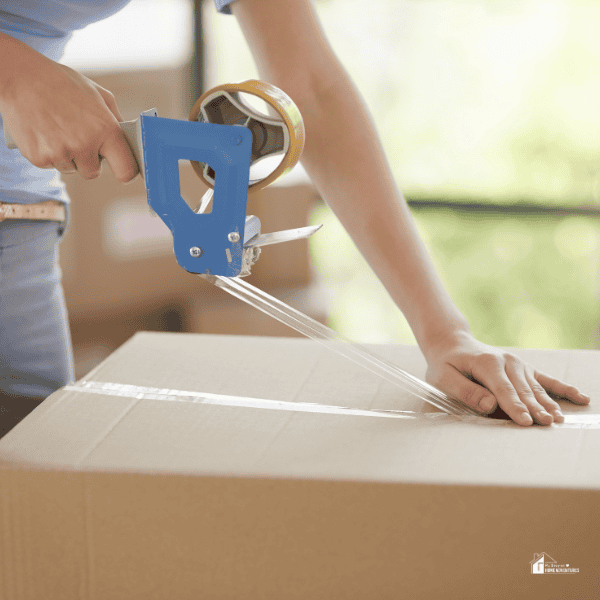Secrets to a Smooth Move: How to Avoid Common Moving Day Disasters
This post may contain affiliate links which might earn us money. Please read my Disclosure and Privacy policies hereMoving to a new home is an exciting milestone, but it can quickly become overwhelming if not properly planned. From packing to transportation, countless details need attention to ensure a stress-free transition.
Without the right approach, moving day can bring unexpected problems, delays, and unnecessary expenses. However, with the right strategies, you can avoid common pitfalls and make your move as seamless as possible.

A successful move requires careful preparation, organization, and the ability to anticipate potential challenges. Whether you’re relocating to a condo in Orlando or a single-family home elsewhere, taking the right steps ahead of time can prevent costly mistakes.
By focusing on efficient packing, hiring the right professionals, and ensuring everything is in place before the big day, you can make the process far less daunting.
Choosing the Right Moving Professionals for a Stress-Free Experience
One of the best ways to prevent moving day disasters is by hiring experienced professionals who can handle the logistics efficiently. Moving large furniture, packing fragile items, and transporting belongings safely requires expertise that professional movers bring to the table.
Instead of relying on friends and family, who may not have the necessary skills or time, working with experts ensures that your move is completed without unnecessary setbacks.
To minimize stress and guarantee a smooth transition, get in touch with local Orlando long distance movers.
Professional movers not only have the right equipment to transport your belongings securely but also offer additional services such as packing assistance and storage solutions.
Their expertise can help prevent common issues such as damaged furniture, misplaced boxes, or delays caused by poor planning.
Additionally, hiring reputable movers reduces the risk of last-minute cancellations or unexpected costs. Before making a decision, research various moving companies, read reviews, and request quotes to compare services.
A well-planned move starts with selecting the right team, ensuring that every aspect of the process is handled professionally.
Packing Smart: Avoiding Chaos and Last-Minute Rush
Packing is one of the most time-consuming aspects of moving, and improper packing can lead to damaged items and unnecessary stress.
Many people underestimate how long it takes to pack an entire household, resulting in last-minute panic and poorly organized boxes. To prevent this, start packing well in advance and follow a systematic approach.
Begin by decluttering your home and getting rid of items you no longer need. Holding onto unnecessary belongings adds to moving costs and complicates the unpacking process. Once you've sorted through everything, pack room by room and label each box clearly.
Categorizing boxes based on their contents and destination in your new home will make unpacking much easier.
For fragile items, use proper packing materials such as bubble wrap, packing paper, and sturdy boxes. Reinforce boxes with strong tape and avoid overloading them to prevent breakage.
If you’re moving high-value items, consider using specialized packing services to ensure they are adequately protected.
Another important packing tip is to prepare an essentials box. This should include items such as toiletries, important documents, a change of clothes, and basic kitchen supplies.
Having these necessities easily accessible on moving day will help you settle in without scrambling to find everyday essentials.
Planning for Moving Day Logistics
A well-planned moving day schedule can prevent unnecessary delays and confusion. Many issues arise when key details, such as transportation, access to the new home, and utility setup, are overlooked.
Creating a checklist and timeline ensures that everything is in place before the moving truck arrives.
Start by confirming all moving arrangements with the company in advance, including the time of arrival and estimated duration of the move.
If you live in a condo, check with building management regarding any moving policies, such as designated move-in hours, elevator reservations, or required permits. This prevents conflicts and ensures a smoother unloading process.
If you’re moving long distance, factor in travel time and potential delays. Consider weather conditions, road closures, and any restrictions in your new neighborhood that may affect truck access.

Preventing Damage to Furniture and Belongings
One of the biggest concerns during a move is preventing damage to furniture, appliances, and fragile items. Even with careful packing, improper handling can result in costly losses.
Taking extra precautions ensures that your belongings arrive at your new home in the same condition they left.
Disassemble large furniture pieces, such as beds, tables, and shelving units, before moving them. Keep screws, bolts, and assembly instructions in labeled plastic bags to avoid losing essential parts.
Wrap furniture in protective covers to prevent scratches and dents during transport.
Appliances should also be handled carefully. If you’re moving a refrigerator, defrost it in advance and secure all loose components inside. Washing machines and dishwashers should be drained properly to prevent leaks during transit.
Taking these steps minimizes the risk of damage and ensures a smooth setup in your new home.
Managing Stress and Staying Organized
Moving can be physically and emotionally exhausting, especially if unexpected challenges arise. Staying organized and maintaining a clear plan can help alleviate stress and keep everything on track.
Begin by setting realistic expectations and allowing ample time for each stage of the move. Rushing through the process often leads to mistakes and added frustration. If possible, take time off work on or around moving day to focus entirely on the transition.
Enlist help from family or friends if needed, and assign specific tasks to ensure nothing is overlooked. If you have pets or small children, consider arranging temporary care for them on moving day to prevent additional distractions.
Settling into Your New Home
Once you’ve successfully moved into your new home, the next step is getting settled. Unpacking and organizing efficiently will make the transition smoother and help you feel at home sooner.
Start by unpacking essential items first, including kitchen supplies, toiletries, and bedroom necessities. Setting up your bed and basic living spaces early on will provide a sense of normalcy amidst the chaos of moving.
Take time to inspect your new home and ensure everything is in working order. Check for any maintenance issues and address them promptly. If you live in a condo, familiarize yourself with building amenities, policies, and security measures to make the adjustment easier.
All in all, moving doesn’t have to be a stressful experience filled with unexpected problems. By planning ahead, hiring the right professionals, and staying organized throughout the process, you can avoid common moving day disasters.








